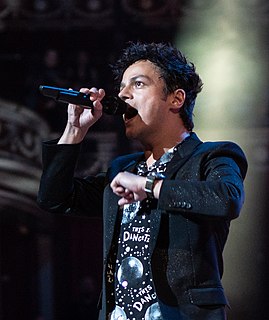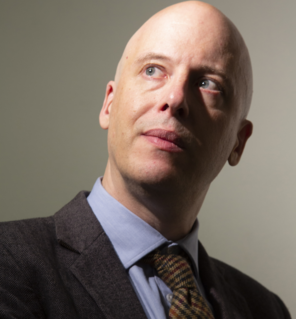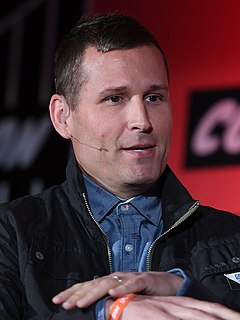A Quote by Bernard Williams
I was interested in philosophy before I knew I was. That's to say, when I was at school, I used to argue with my friends about issues that turned out to be philosophical ones of some kind.
Quote Topics
Related Quotes
I don't know whether I can say that having a career in philosophy has turned out as I imagined, since in many ways I had little idea of what such a life would be like. But philosophy is still tremendously exciting to me, and the opportunity to think, and talk, and write about these issues has been wonderful.
Logical investigations can obviously be a useful tool for philosophy. They must, however, be informed by a sensitivity to the philosophical significance of the formalism and by a generous admixture of common sense, as well as a thorough understanding both of the basic concepts and of the technical details of the formal material used. It should not be supposed that the formalism can grind out philosophical results in a manner beyond the capacity of ordinary philosophical reasoning. There is no mathematical substitute for philosophy.
In my view, there was a long period in which analytical philosophy had little to say about ethics. I think their intellectual tools did not do well with it, and analytical philosophy was above all about revolutionizing the philosophical tool box. It was more or less assumed that the Truth about ethics was some form of utilitarianism (perhaps because some consequentialist calculus looked to them like a respectable tool). Kantian ethics was then interpreted as a particularly odious version of the False - "deontology" - and treated with contempt.
Certain issues in philosophy of science (having to do with observation and the definition of a theory's empirical import) had beenmisconstrued as issues in philosophy of logic and of language. With respect to modality, I hold the exact opposite: important philosophical problems concerning language have been misconstrued as relating to the content of science and the nature of the world. This is not at all new, but is the traditional nominalist line.
Even if I turned myself in, it wouldn't change anything. It wouldn't make me one of them. I knew that when I got my powers, but really I knew it before then. I learned it as a child on my first day of school, on the warm rainy streets of Bangkok, and in college. If you're different you always know it, and you can't fix it even if you want to. What do you do when you find out your heart is the wrong kind? You take what you're given, and be the hero you can be. Hero to your own cold, inverted heart.
I have really fond memories of growing up in Chicago, and I always love going back. I still have a lot of really good friends from high school that I go to dinner with. It's kind of become a tradition when I go out there to do a show to give a few friends a call, tell some funny stories about high school and walk down memory lane.
Philosophy aims at the logical clarification of thoughts. Philosophy is not a body of doctrine but an activity. A philosophical work consists essentially of elucidations. Philosophy does not result in 'philosophical propositions', but rather in the clarification of propositions. Without philosophy thoughts are, as it were, cloudy and indistinct: its task is to make them clear and to give them sharp boundaries.
Quite early on, and certainly since I started writing, I found that philosophical questions occupied me more than any other kind. I hadn't really thought of them as being philosophical questions, but one rapidly comes to an understanding that philosophy's only really about two questions: 'What is true?' and 'What is good?'
Before I ran for District Attorney, two Republicans invited my husband and me to lunch. And I knew a party-switch was exactly what they wanted. So, I told Chuck, we'll be polite, enjoy a free lunch and then say goodbye. But we talked about issues - they never used the words Republican, or Democrat, conservative or liberal. We talked about many issues, like welfare - is it a way of life, or a hand-up? Talked about the size of government - how much should it tax families and small businesses? And when we left that lunch, we got in the car and I looked over at Chuck and said, "I'll be damned, we're Republicans."
I knew it,’ she says. ‘I knew I had met you before. I knew it the first time I saw your photograph. It’s as if we had to meet again at some point in this life. I talked to my friends about it, but they thought I was crazy, that thousands of people must say the same thing about thousands of other people every day. I thought they must be right, but life… life brought you to me. You came to find me, didn’t you?








































